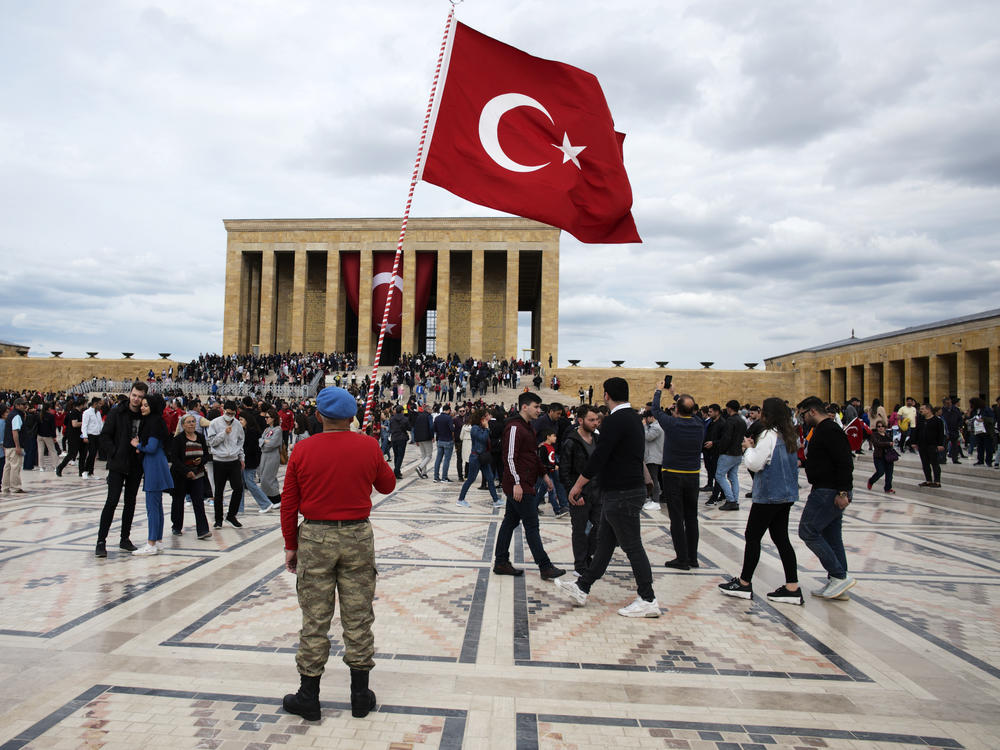Section Branding
Header Content
Turkey will now be known as Türkiye (at least at the U.N.)
Primary Content
Turkey has a new name —at least at the United Nations. The organization has agreed to recognize it as Türkiye after a request from the country's government, which has been working to rebrand the nation's name since last winter.
Turkish Foreign Minister Mevlut Cavusoglu formally asked for the change in a letter to the U.N. and other international agencies this week.
"The process we started under the leadership of our President Recep Tayyip Erdogan in order to increase our country's brand value is to be finalized," Cavusoglu tweeted on Tuesday, according to a translation from Balkan Insight.
On Wednesday, U.N. spokesperson Stephane Dujarric told the state-run outlet Anadolu Agency that the name change took effect from the moment the letter was received.
The country's rebranding campaign began in December — during a period of skyrocketing inflation and a worsening economic crisis — when President Recep Tayyip Erdogan issued a memorandum asking other countries to use the name Türkiye.
Domestically, he also instructed that products for export be labeled "Made in Türkiye" and state agencies use the name in official documents, according to Al Jazeera.
"Türkiye is the best representation and expression of the Turkish people's culture, civilization and values," Erdogan said at the time.
The country called itself Türkiye — which is pronounced "tur-key-YAY" — after its declaration of independence in 1923, The Associated Press notes. Much of the Turkish public already recognizes that name, though the anglicized version is commonly used inside the country as well.
In January, the country launched a tourism campaign called "Hello Türkiye," with a video showing tourists uttering the phrase from different sites across the country. The state broadcaster TRT World said the campaign's goal was to "announce and raise global awareness about using the country's original name."
Turkish officials and state-run media suggest there are several reasons behind the push to have the country internationally recognized as Türkiye — including strengthening its identity and distancing itself from certain less-flattering associations (and search results).
TRT World listed two of them in December, pointing out that the Cambridge Dictionary defines Turkey as "something that fails badly" or "a stupid or silly person."
And if you type the word into Google, it added, "you will get a muddled set of images, articles, and dictionary definitions that conflate the country with Meleagris — otherwise known as the turkey, a large bird native to North America — which is famous for being served on Christmas menus or Thanksgiving dinners."
While Turkey's homonym problem may be unique, it's not unusual for countries to change their names.
There's a myriad of historical examples, including Persia becoming Iran and Siam becoming Thailand. And more recently, in 2020, the Dutch government started rebranding the country as the Netherlands rather than Holland.
Copyright 2022 NPR. To see more, visit https://www.npr.org.

